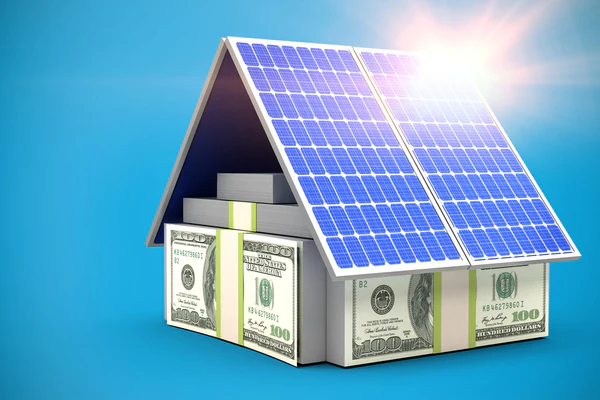Eco-Friendly Solar Power with Simply Solar Illinois – Go Green Today
How Solar Energy Can Assist You Save Money and Decrease Your Carbon Footprint
The combination of solar power right into your energy profile provides an engaging chance for both economic cost savings and environmental stewardship. As different federal government motivations end up being available, the inquiry arises: exactly how can one efficiently browse the first investments and continuous advantages of solar innovation to take full advantage of both financial and environmental gains?
Comprehending Solar Power Financial Savings
While the transition to solar power usually includes a preliminary financial investment, understanding solar energy cost savings is critical for homeowners and services alike. Solar power systems can considerably reduce electrical energy costs by utilizing the sun's power, converting into considerable long-term monetary advantages. By generating their own electricity, individuals lessen dependence on grid power, which undergoes fluctuating prices. These financial savings can accumulate in time, typically bring about a quick roi.
Furthermore, solar power systems might get numerous monetary rewards, including tax obligation credit reports and refunds, additionally improving their cost-effectiveness. The accessibility of net metering permits individuals to market excess power back to the grid, producing an extra revenue stream. These variables add to the overall savings linked with solar power.

In addition to direct financial savings, solar power provides the added advantage of boosting home value. Residences geared up with solar panels are typically a lot more appealing to purchasers, as they guarantee lower power prices - Simply Solar Illinois. Comprehending these components is essential for anyone considering solar power, as it highlights not simply the prospective monetary gains, but also the broader ecological and financial advantages of embracing sustainable energy solutions
Initial Expenses vs. Long-Term Perks
When examining solar power, it is necessary to consider the preliminary expenses against the long-term advantages. The in advance investment for photovoltaic panels, setup, and relevant devices can be considerable, typically ranging from $15,000 to $30,000, relying on the system size and home power demands. This preliminary expenditure might discourage some homeowners; nonetheless, it is vital to think about the potential financial savings in time.
Once set up, solar power systems can significantly reduce or also eliminate month-to-month electrical power costs, resulting in considerable long-term financial benefits. Researches indicate that property owners can save anywhere from $10,000 to $30,000 over the life-span of their solar system, typically 25 years. In addition, many states supply rewards, tax obligation credit reports, and discounts that can offset initial costs, making solar more available.

Minimizing Your Carbon Impact
Lowering your carbon footprint is a crucial consideration in today's ecologically aware society, and embracing solar energy is among the most efficient strategies to accomplish this goal. Solar power is a clean, sustainable source that significantly decreases dependence on nonrenewable fuel sources, which are major contributors to greenhouse gas discharges.

In addition, the prevalent adoption of solar technology urges the advancement of environment-friendly tasks and supports advancements in energy storage and performance. The more individuals and organizations invest in solar energy, the better the cumulative reduction in carbon emissions, promoting a cleaner environment for future generations.
Government Motivations and Rebates
Adopting solar energy not only profits the atmosphere yet can additionally lead to considerable economic savings, particularly with the go to website accessibility of government motivations and rebates. Different government, state, and local programs are created to encourage home owners and companies to purchase solar power systems, making the transition a lot more budget-friendly.
One of the most famous rewards is the Federal Financial Investment Tax Credit Scores (ITC), which enables solar system owners to deduct a substantial percentage of the setup prices from their federal taxes. This incentive has been critical in lowering the upfront costs related to solar power systems. In addition, numerous states use their own tax credit scores, gives, and discounts that can additionally improve financial savings.
Furthermore, some neighborhood governments give real estate tax exceptions for solar installations, guaranteeing that home owners do not face boosted real estate tax like it as an outcome of their renewable resource financial investments. Energy companies might additionally use motivations, consisting of net metering and feed-in tariffs, which enable solar power users to market excess power back to the grid.
Selecting the Right Solar System
Selecting the ideal planetary system is crucial for making the most of power performance and monetary advantages. The choice rests on several factors, consisting of energy demands, budget plan, and available space. Homeowners must begin by analyzing their electrical energy usage to determine the system dimension needed for optimum performance.
Following, think about the various types of solar modern technologies available. Simply Solar Illinois. Solar (PV) panels are one of the most typical, transforming sunlight directly into power, while solar thermal systems concentrate on heating water. Each kind has distinctive advantages relying on individual demands
Budget factors to consider are also critical. Initial setup costs can vary dramatically, so it is very important to contrast quotes from numerous carriers and explore financing alternatives. Government incentives and refunds can even more reduce try these out the financial problem, making planetary systems more easily accessible.
Verdict
The environmental benefits of solar energy contribute to sustainable techniques crucial for combating environment adjustment. Government rewards boost the expediency of solar modern technology fostering, urging a change in the direction of a cleaner, a lot more economically efficient power source.